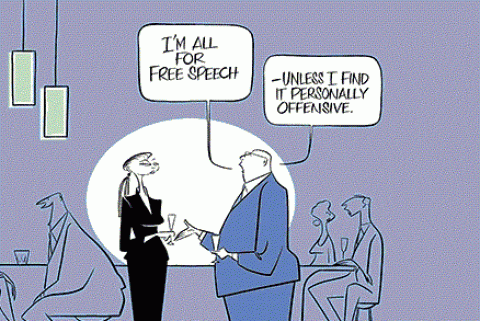By Péter Torma
‘’Economists have studied differential pricing for years…. Big Data seems poised to revolutionize pricing in practice….’’[i]
Big Data as a way to discriminate prices?
This article focuses on a very relevant issue, namely that several platforms using Big Data are becoming more and more dominant. The platforms using Big Data are collecting, analysing and producing datasets about users/consumers. With these activities, they are reshaping the markets and its pricing techniques using a tool called behavioural profiling. On one hand, it is obvious that Big Data can be used to the benefit of users, consumers.[ii] On the other however, it is also a source of danger, namely that it can create a whole range of new consumer harms to users, when its use is unregulated by centralized data platforms.[iii]
Data and Price Discrimination
There is a lot of value in price discrimination (differential pricing, personalized pricing) for overcoming fixed costs (third degree price discrimination).[iv] But price discrimination very often raises concerns about competition and the privacy of customers and consumers.[v] Although the current competition and privacy laws provide a variety of legal methods to tackle the issues resulting from price discrimination in conventional circumstances, the situation is completely different when these concerns are raised by the application of Big Data in e-commerce. Given the high velocity at which technology is evolving, the use of Big Data in commercial contexts require thorough surveillance from the authorities, especially if we take into account that more and more companies are using personal information or even complete user profiles while doing business. In a lot of cases they are doing this in unclear (or sometimes even shady) ways which fall outside the existing legal framework. [vi]
Data are the „new oil of the internet and the new currency of the digital world”[vii], it can help organizations to create new economic value. It is also a fact, that the online advertising market exploded and has become the largest advertising sector.[viii] The result of the swift technological development is a new, continuously expanding range of tools to utilize the big amount of data. The current technological development focuses on advanced analytical methods and evaluating techniques. With these techniques, market players are able to provide more precise and personalized services for the users. They can also predict social needs pro futuro, thus they do not have to wait for them to emerge, which can help promote innovation and development. In one word it can be said that data –when used in a right way- increases economic efficiency. But on the dark side of Big Data, a range of new consumer harms has emerged as a result of the unregulated use of Big Data by increasingly centralized data platforms. Therefore it is leaving consumers vulnerable to economic exploitation (e.g. price discrimination). It is also unclear whether the above-mentioned advantages will result in benefits on the side of the consumer, or just as improvements for the platforms exploiting Big Data and ‘’channel an ever greater share of economic wealth into the hands of these Big Data platforms’’.[ix] [x]
Behavioural profiling – Is it bad?
It is out of the question that some (or even most) of the above-mentioned practices are serving the purpose to promote new products and better brands to consumers. But with the appearance and the rise of ‘’behavioural profiling’’, where platforms are using the extracted personal data, the use of advertising for exploitative practices has become a contemporary problem (e.g.: increasing the prices of tickets by flight companies with using cookies to monitor the behaviour of prospective customers). With this, consumers can not only be targeted by special products and services tailored to them, but can also be exploited via profiling, when the same product or service can be offered to different consumers for different prices (i.e.: price discrimination), thus maximizing the revenue and to set prices at the individual ‘’pain point’’ of each consumer. This is what we call price discrimination.[xi]
However, the ‘’individual profiling’’ – though it is harmful – is not as adverse as the broader aggregation of data, which is called ‘’algorithmic profiling’’.[xii] With algorithmic profiling, companies are able to categorize consumers into categories, and discriminate not against the individual, but against the group. One of the biggest problems with this kind of exploitation is that it is mostly being done without the knowledge of the consumers or group(s) of consumers.[xiii] Almost every action taken online by consumers generates data, which is then collected into datasets by companies specialized in tracking – mostly invited by the owner of the respective website- who follow users across the whole web,[xiv] just to sell the generated user profiles to online advertisers.
It is worth mentioning that a recent study shows that the average prices with traditional mass-market advertising were lower than average prices with targeted online advertising.[xv] This shows that when online advertisers know the individual ‘’pain points’’ of consumers (i.e.: the level of their willingness to pay different prices) they can reach out for the tool of price discrimination and increase their profits to the maximum, and cause some consumers to pay up to double the price of what a different group of consumers pay. The above mentioned conduct can and does raise the overall price of a certain product or service.[xvi] This type of online discrimination can be even more harmful and shady to consumers, since they don’t even know what prices are being offered to other consumers. To make things worse, it can be based not only on economical, but social and even racial facts (e.g. housing agencies offering houses in the same racial neighbourhood as the race of the customer). What is concerning at the moment is that it is very unclear if current laws can address the above-mentioned problems effectively or not. [xvii]
For some market players, Big Data even gives the ability to find, entice and in the end exploit the most vulnerable group(s) of consumers, and to basically remain almost invisible for almost everyone else, including those groups or authorities who are trying to evaluate the harms emanating from online price discrimination.
Above the loss resulting from price discrimination, we can say that the consumers lose out twice.[xviii] First, companies collect their personal data, via their free labour and their personal data are being used to generate profit for Big Data platforms. Secondly, they are put into a group and exploited through the above mentioned price discrimination. Big Data platforms are also generating profit from selling the users personal data to advertisers and attract other customers via its networking effects like Facebook (i.e.: the more people are using the platform the more new users are going to register to benefit from the wide network of the platform). De facto, this is a kind of a ‘’barter relationship’’ with the Big Data platforms, and as we can see from the economic history of barter, the partners with less information and knowledge on the market inevitably fall behind in the competition and lose financially in the end.[xix]
One of the biggest problems is that – according to multiple studies – most of the users (consumers) don’t even know (and some of them don’t even care) that their personal data and behavioural maps are being drawn up and collected by Big Data platforms and that these platforms sell the consumers out to third parties, to assist in online advertising.[xx] But presumably, if users would know how their data are being collected and then how and for what purposes it is going to be used, a significant fraction of them would not give their consent to the platform to do so. However, we have to acknowledge that many user would happily give out their data and give up their privacy if it results in free products and/or services. Most of those users however, who understand what is happening, frequently express their dislike that they lack the capacity to stop that behaviour.[xxi] The desire of such users to stop tracking, aggregating and sharing of data has been increasing.[xxii] Therefore it is desirable to raise the number of those users who are aware of the above discussed conduct of Big Data platforms. In order to achieve this goal, we need to use a method to make sure that consumers can understand the terms of service of the companies they transact with, particularly when it comes to the collection and use of personal data. In other words, the objective is to ‘’achieve greater transparency and awareness over platforms’’ collecting and using user data, by giving a comprehensive and finely structured overview of the main controversial aspects inside the terms of service and the privacy policies of online platforms.[xxiii]
Conclusion
It is still not completely clear how Big Data can and will change the ‘’conventional’’ ways of price discrimination. But what is sure, is that it is going to cause a big change in both differential pricing techniques and e-commerce. If we take a look at current commercial practices, we can see that dealers and advertisers are using Big Data with a constantly increasing effect to explore the demand on the consumer side and to create personalised offers to consumers and/or groups of consumers and to set personalized prices for them.[xxiv] And if, based on their habits, consumers got associated with particular categories or groups, they can find themselves in a situation where opportunities are opening up or closing down, depending on how Big Data algorithms categorise them.[xxv]
The usage of big data by platforms is not necessarily a bad thing in itself, but it is at the utmost importance to effectively regulate Big Data and the way it is being used by platforms in order to reduce its negative effects and increase the positive ones. In order to achieve this it is important to carefully distinguish between the productive and dissipative concealment of private data. To delimit the use of big data merely because it causes some users negative experience on one hand would reduce welfare, and on the other would be unfair, since ‘’it forces those with relatively good attributes to subsidize both those with bad attributes and those with extreme preferences for privacy’’.[xxvi] There are those who say[xxvii] that big data – if used appropriately- can result in very positive side effects, especially on the labour market and pharma sector. As we can see big data raises several privacy and consumer protection concerns, but being over-anxious over them, could result in confusing the possible benefits for costs.[xxviii]
__________________________________________________________________
[i] Big Data and Differential Pricing see at: https://www.whitehouse.gov/sites/default/files/docs/Big_Data_Report_Nonembargo_v2.pdf
[ii] James C. Cooper – Separation, Pooling, and Predictive Privacy Harms From Big Data: Confusing Benefits for Costs? Read more: http://papers.ssrn.com/sol3/papers.cfm?abstract_id=2655794
[iii] Nathan Newman – How Big Data Enables Economic Harm to Consumers, Especially to Low-Income and Other Vulnerable Sectors of the Population
[iv] Will Big Data Bring More Price Discrimination? (Adam Ozimek – Forbes, 2013) see more at: http://www.forbes.com/sites/modeledbehavior/2013/09/01/will-big-data-bring-more-price-discrimination/
[v] Lars A. Stole – Price Discrimination and Imperfect Competition, 2003, p. 82-83, read more: http://web.mit.edu/14.271/www/hio-pdic.pdf
[vi] Big Data and Differential Pricing (see: https://www.whitehouse.gov/sites/default/files/docs/Big_Data_Report_Nonembargo_v2.pdf)
[vii] Hill, Kashmir: ‘Would Monetizing Our Personal Data Ease Privacy Concerns?’, 2010
[viii] Mayer-Schönberger, Viktor – Cukier, Kenneth: Big Data, HVG Books, Budapest, 2014, p 13.
[ix] Nathan Newman – How Big Data Enables Economic Harm to Consumers, Especially to Low-Income and Other Vulnerable Sectors of the Population p 2.
[x] Jaron Lanier – Who Will Own the Future? (March 4, 2014)
[xi] Nathan Newman – How Big Data Enables Economic Harm to Consumers, Especially to Low-Income and Other Vulnerable Sectors of the Population p 2-3.
[xii] Nathan Newman – How Big Data Enables Economic Harm to Consumers, Especially to Low-Income and Other Vulnerable Sectors of the Population p 3.
[xiii] R. Preston McAfee, Price Discrimination, in 1 ISSUES IN COMPETITION LAW AND POLICY 465 (ABA Section of Antitrust Law 2008) p. 468.
[xiv] Nathan Newman – How Big Data Enables Economic Harm to Consumers, Especially to Low-Income and Other Vulnerable Sectors of the Population p 3.
[xv] Rosa-Branc Esteves and Joana Resende ‘’Competitive Targeted Advertising with Price Discrimination’’ Working Paper 2011 March
[xvi] Benjamin Reed Shiller – First Degree Price Discrimination Using Big Data see more: http://www.brandeis.edu/departments/economics/RePEc/brd/doc/Brandeis_WP58.pdf
[xvii] Nathan Newman – How Big Data Enables Economic Harm to Consumers, Especially to Low-Income and Other Vulnerable Sectors of the Population p 5-6
[xviii] Nathan Newman – How Big Data Enables Economic Harm to Consumers, Especially to Low-Income and Other Vulnerable Sectors of the Population p 7.
[xix] Nathan Newman – How Big Data Enables Economic Harm to Consumers, Especially to Low-Income and Other Vulnerable Sectors of the Population p 9.
[xx] Jan Whittington & Chris Jay Hoofnagle – ‘’Unpacking Privacy’s Price’’ (2012)
[xxi] Benjamin Reed Shiller – First Degree Price Discrimination Using Big Data see more: http://www.brandeis.edu/departments/economics/RePEc/brd/doc/Brandeis_WP58.pdf
[xxii] Avi Goldfarb – Catherine Tucker, ‘’Shifts in Privacy Concerns’’ (2012)
[xxiii] There is a project going on to reach this goal in the framework of the ’’ Terms of Service and Human Rights Project’’. Read more: https://www.newschallenge.org/challenge/data/entries/terms-of-service-and-human-rights
[xxiv] Big Data and Differential Pricing (see: https://www.whitehouse.gov/sites/default/files/docs/Big_Data_Report_Nonembargo_v2.pdf)
[xxv] Nathan Newman – How Big Data Enables Economic Harm to Consumers, Especially to Low-Income and Other Vulnerable Sectors of the Population p 6.
[xxvi] James C. Cooper – Separation, Pooling, and Predictive Privacy Harms From Big Data: Confusing Benefits for Costs? p. 50 read more: http://papers.ssrn.com/sol3/papers.cfm?abstract_id=2655794
[xxvii] Dr. Nabarun Dasgupta, James C. Cooper, Trevor Moore
[xxviii] James C. Cooper – Separation, Pooling, and Predictive Privacy Harms From Big Data: Confusing Benefits for Costs? p. 50 read more: http://papers.ssrn.com/sol3/papers.cfm?abstract_id=2655794








